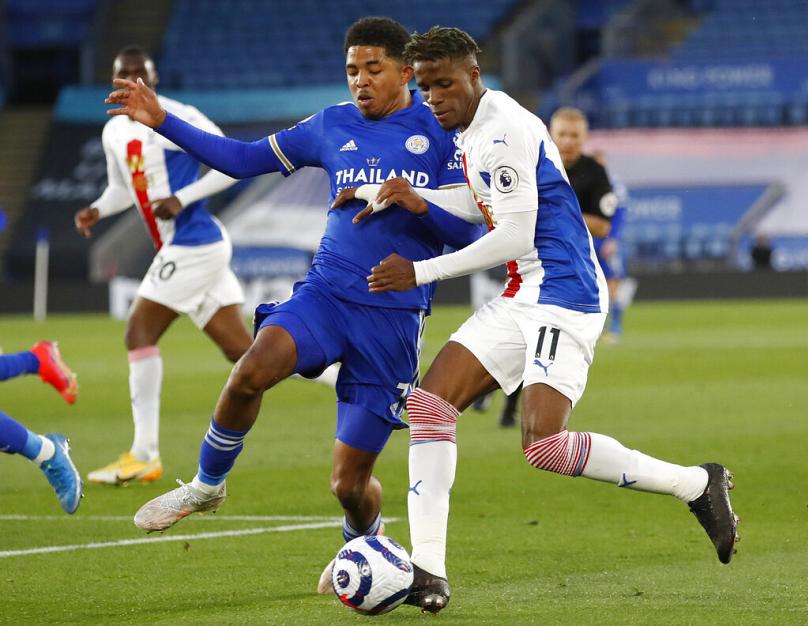FOOTBALL NOW is a new show that brings to light some of the global game's biggest issues, challenges, and debates.
As spring turns into summer in Europe, April and May are known as 'the business end' of the football season, when trophies and titles are up for grabs. April is also the start of Ramadan this year. The month of Ramadan is a holy month for Muslims when healthy adults fast from sunrise to sunset.
It is a break from the regular routine for athletes who treat their bodies as elite sportspeople. Despite this, they deal with the challenge head-on. It also helps that they receive support and encouragement from their clubs and fans.
Muslim Sporting Icons
Around a third of the world's population are Muslim. It is no surprise that some of the finest footballers in the world are too. Mohamed Salah is a sporting icon both on and off the pitch in Egypt and in Liverpool, his adopted city. Paul Pogba and Karim Benzema have claimed some of the world's biggest trophies, and Riyad Mahrez is on course for more silverware at Manchester City. These illustrious names have all been at the top of their game over the last decade. They are well-versed in making the necessary changes to their daily schedule during Ramadan.
According to an article published by Aspetar, a world-leading specialised hospital for orthopaedics and sports medicine. Athletes, coaches, and authorities are informed about what strategies can be implemented to help them cope with the lifestyle changes related to Ramadan.
Diet, Hydration, Sleep and Training
The most obvious is perhaps diet. An athlete should eat three large meals each day, but this is likely to be modified during a fasting month. Similarly, hydration needs will vary.
A proper sleep pattern is also crucial for sports stars to aid recovery, especially with the demanding schedule associated with the top football leagues worldwide.
Epidemiologist Abdulaziz Farooq told Football Now that:-
80% of Muslim athletes reported that their endurance is reduced.
70% said their mental concentration suffered.
60% believed their sleep quality would lessen.
Football managers and their coaching teams can counteract these challenges by being more flexible with individual players' training schedules. Coaches are also advised to monitor the player's training load, recovery, mood, and motivation. They are also advised to keep an eye on any significant deviation from pre-Ramadan levels and intervene and help where necessary.
Domestic and International Competition
Football organisations such as the Qatar Sports League have also played their part in recent years. Outside of Ramadan, training and matches generally start around 6:30. During the holy month, they are pushed back until after the sun sets to allow for players to refuel before stepping onto the field.
The world's most popular league - the Premier League, has also begun to move with the times. History was made in April 2021. A game between Leicester and Crystal Palace was paused to allow Muslim players to break their fast during Ramadan. Leicester's Wesley Fofana tweeted 'That's what makes football wonderful' after the game.
Semi-professional footballer and practising Muslim Sufyan Zia described it as an inspirational moment for players like him, telling Football Now, "It's a really good feeling because Muslim players sometimes may struggle to fast, especially in the professional game. Clubs should definitely speak with officials or leagues to allow a couple of minutes in a game because it's not going to harm anyone, just having a date or two and getting a drink.
"It also gives clubs and players the insight to see what Muslim players go through as well. It also allows people to increase their knowledge of the religion and the month itself."
- Sufyan Zia, Footballer -
Over the past decade, many of football's biggest competitions have taken place during the fasting month. These include the Olympics in 2012, parts of the 2014 and 2018 World Cups, and the European Championships in 2016. Some players were still able to reach the top of their sport despite this.
Sadio Mane was fasting in the run-up to the 2018 Champions League Final and scored the equalising goal against Real Madrid.
Mohammed Salah was injured in that game but still recovered sufficiently to take his place at the World Cup in Russia, where he scored twice for Egypt during the group stages.
World Cup winner Paul Pogba and Algeria's Riyad Mahrez have made the pilgrimage to Mecca. Mahrez's international team-mate Rais M'bolhi broke his fast at half-time with water and dates during the 2014 World Cup clash with Germany.
This season Premier League captains will also be able to request a drinks break at an appropriate moment in the game during their pre-match meeting with referees.
Campaigning for Change
Over the past decade, many of football's biggest competitions have taken place during the fasting month. These include the Olympics in 2012, parts of the 2014 and 2018 World Cups, and the European Championships in 2016. Some players were still able to reach the top of their sport despite this.
Sadio Mane was fasting in the run-up to the 2018 Champions League Final and scored the equalising goal against Real Madrid.
Mohammed Salah was injured in that game but still recovered sufficiently to take his place at the World Cup in Russia, where he scored twice for Egypt during the group stages.
World Cup winner Paul Pogba and Algeria's Riyad Mahrez have made the pilgrimage to Mecca. Mahrez's international team-mate Rais M'bolhi broke his fast at half-time with water and dates during the 2014 World Cup clash with Germany.
This season Premier League captains will also be able to request a drinks break at an appropriate moment in the game during their pre-match meeting with referees.
Football has always played a vital role in bringing people together, and perhaps in this holy month, it can continue to increase its role in helping Muslim footballers thrive at both the top end of the sport and at a local level too.

